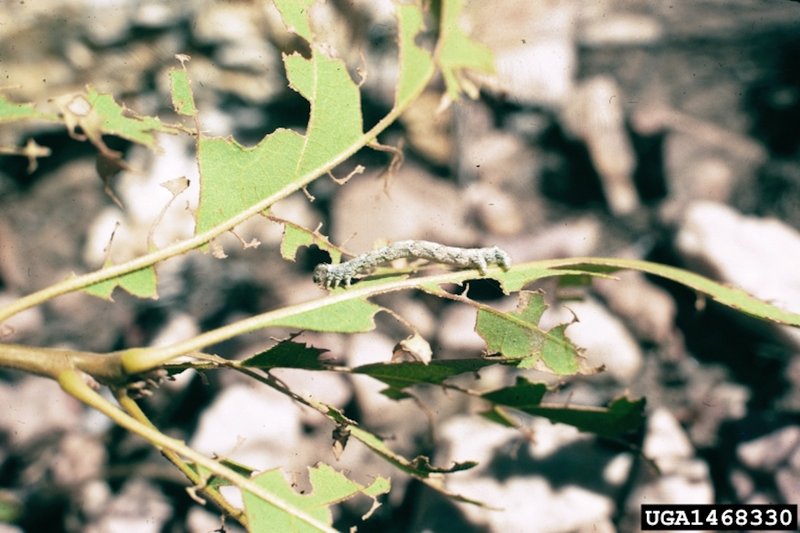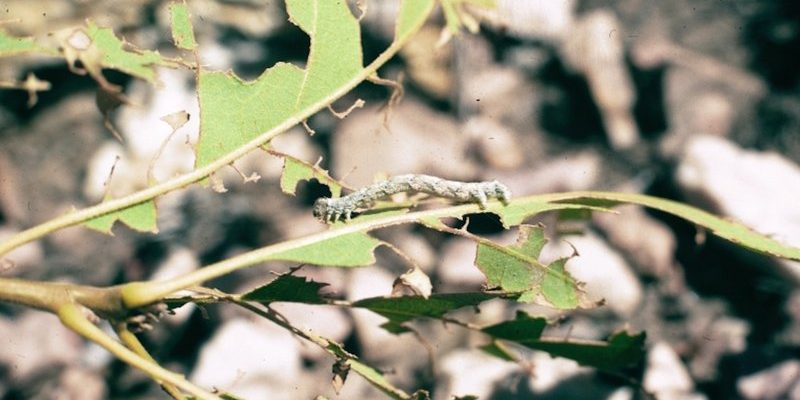
Let’s dive into how you can manage those inchworms while keeping your garden clean and safe. First, it’s essential to recognize what inchworms are and how they can affect your plants. These little critters, which belong to the Geometridae family, can be quite the nuisance, munching their way through leaves and causing significant damage if left unchecked. But instead of reaching for the spray can of chemicals, let’s explore some natural and effective alternatives. So grab your gardening gloves, and let’s get started!
Understanding Inchworms: The Basics
So, what exactly are inchworms? You might have seen them dangling from branches or inching along with a characteristic looping motion. These caterpillars, often green or brown, are the larval stage of various moth species. They typically feed on the leaves of trees and shrubs, which can lead to unsightly damage and even weaken your plants over time.
Inchworm populations can explode in certain conditions, especially in spring when new leaves are abundant. If you notice them munching on your plants, you might be thinking, “Do I really have to use pesticides?” The answer is a resounding no! There are plenty of natural and organic methods to keep these pests in check without resorting to harmful chemicals.
Natural Predators: Friendly Helpers in Your Garden
One of the best ways to manage inchworms is by welcoming their natural predators into your garden. Think of your garden as a mini ecosystem, where every creature plays a part. Birds, for example, love to snack on inchworms, so attracting them can help keep your pest population in check.
To create a bird-friendly environment, consider adding bird feeders, birdbaths, and native plants that provide shelter. You’d be amazed at how many feathered friends will flock to your garden, all while munching on those pesky inchworms.
Additionally, beneficial insects like ladybugs and lacewings also help control inchworm populations. If you create a welcoming habitat for these helpful insects, they’ll naturally keep pests at bay. You might even find yourself enjoying the sight of these little helpers buzzing around your plants!
Encouraging Biological Control
Another effective method for inchworm management involves encouraging biological control. This involves using *natural enemies* to keep pest populations in check. For example, parasitic wasps can lay their eggs inside inchworms, ultimately leading to their demise. While this might sound a bit gruesome, it’s all part of nature’s balance.
To promote these beneficial wasps, try planting flowers like dill, fennel, and yarrow that can attract them. By adding diversity to your garden, you’ll create a habitat where these helpful insects can thrive. Plus, who doesn’t love a garden that’s full of different colors and textures?
Handpicking: A Simple Yet Effective Approach
If you have a small garden or just a few infested plants, handpicking inchworms can be a straightforward solution. It might take a little time and patience, but when you spot these little creatures, simply pluck them off and relocate them.
Consider wearing gardening gloves to avoid any discomfort, and keep a bucket handy for your captures. If handpicking isn’t your thing, you can also use a gentle spray of water to dislodge them from plants. Just be careful not to damage the leaves while doing this.
Consistency is key, so check your plants regularly, especially if you know inchworms are an issue. It’s like keeping an eye on your favorite plant: a little attention goes a long way!
Using Organic Solutions: Safe Sprays and Treatments
If you want to take a step further, there are several organic solutions available that can help manage inchworms without pesticides. Products like neem oil or insecticidal soap can be effective against these pests while being gentle on beneficial insects.
Neem oil works by disrupting the life cycle of the pests, and it’s derived from the seeds of the neem tree. Insecticidal soap, on the other hand, suffocates the insects on contact. When using these treatments, always read the label and apply them in the early morning or late evening to minimize harm to beneficial insects.
Remember, the goal is to target the pests while preserving the health of your garden. It’s about finding that balance—like enjoying a piece of cake without overindulging!
Monitoring and Maintaining a Healthy Garden Ecosystem
Good garden maintenance is another crucial factor in inchworm management. A healthy ecosystem is less susceptible to pest invasions. Start by keeping your plants well-watered and mulched; this helps them resist stress and stay strong.
You might also want to prune dead or infested branches. This not only removes potential pests but also encourages new growth. By regularly inspecting your plants, you can catch any issues before they escalate. It’s like checking your phone for updates—stay on top of things, and you’ll avoid major problems down the line.
Finally, consider rotating your crops each season. This not only helps prevent pest buildup but also keeps your soil nutrient-rich. Think of it as giving your plants a refreshing change of scenery!
Wrapping Up: A Pesticide-Free Approach to Inchworm Management
Managing inchworms without pesticides is not only possible; it can be fun and rewarding! By using natural predators, handpicking, organic solutions, and maintaining a healthy garden, you’ll find that inchworms can be kept at bay without resorting to harsh chemicals.
So the next time you see an inchworm, instead of reaching for that pesticide bottle, remember you have plenty of options. Your garden, the local wildlife, and the planet will thank you for it! After all, gardening should be about connection—with nature, your plants, and even the little critters that share your space. Now go ahead, get your hands in the dirt, and enjoy the beauty of a thriving, pesticide-free garden!

